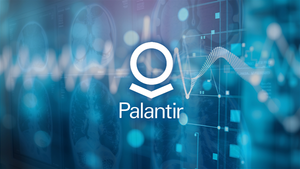
In a significant stride towards modernizing public sector operations, Swiftbuild.ai has introduced its SwiftGov platform, a groundbreaking AI-powered solution designed to overhaul government building and permitting processes. This innovative platform is set to dramatically accelerate housing development, enhance bureaucratic efficiency, and reshape urban planning by leveraging advanced Artificial Intelligence (AI) and Geographic Information System (GIS) technologies. The immediate significance of SwiftGov lies in its ability to tackle long-standing inefficiencies, reduce administrative burdens, and ensure compliance, promising a new era of streamlined and transparent governmental services.
SwiftGov's launch comes at a critical time when governments nationwide are grappling with the dual challenges of rapidly increasing housing demand and often-outdated permitting systems. By offering a secure, intelligent platform that can expedite approvals and automate complex compliance checks, Swiftbuild.ai is not just improving an existing process; it's fundamentally transforming how communities grow and develop. This move signals a strong shift towards specialized AI applications addressing concrete, real-world bottlenecks in public administration, positioning Swiftbuild.ai as a key player in the evolving GovTech landscape.
The Technical Backbone: AI and Geospatial Intelligence at Work
The technical prowess of SwiftGov is rooted in its sophisticated integration of AI and GIS, creating a powerful synergy that addresses the intricate demands of government permitting. At its core, the platform utilizes AI for intelligent plan review, capable of interpreting site and building plans to automatically flag compliance issues against local codes and standards. This automation significantly enhances accuracy and expedites reviews, drastically cutting down the manual effort and time traditionally required. Co-founder Sabrina Dugan, holding multiple patents in AI technology including an AI-driven DWG system for land development code compliance review, underscores the deep technical expertise underpinning the platform's development.
SwiftGov differentiates itself from previous approaches and existing technologies by offering bespoke AI permitting tools that are highly configurable to specific local codes, forms, and review processes, ensuring tailored implementation across diverse governmental entities. Unlike legacy systems that often rely on manual, error-prone reviews and lengthy paper trails, SwiftGov's AI-driven checks provide unparalleled precision, minimizing costly mistakes and rework. For instance, Hernando County reported a 93% reduction in single-family home review times, from 30 days to just 2 days, while the City of Titusville has seen some zoning reviews completed in under an hour. This level of acceleration and accuracy represents a significant departure from traditional, often unpredictable, permitting cycles.
The platform also features an AI-driven analytics component, "Swift Analytics," which identifies inefficiencies by analyzing key data points and trends, transforming raw data into actionable insights and recommendations for enhanced compliance and streamlined workflows. Furthermore, SwiftGov integrates GIS and geospatial services to provide clear mapping and property data, simplifying zoning and land use information for both staff and applicants. This unified AI platform consolidates the entire permitting and compliance workflow into a single, secure hub, promoting automation, collaboration, and data-driven decision-making, setting a new benchmark for efficiency in government processes.
Competitive Implications and Market Positioning
Swiftbuild.ai's SwiftGov platform is carving out a significant niche in the GovTech sector, creating both opportunities and competitive pressures across the AI industry. As a specialized AI company, Swiftbuild.ai itself stands to benefit immensely from the adoption of its platform, demonstrating the success potential of highly focused AI applications addressing specific industry pain points. For other AI startups, SwiftGov exemplifies how tailored AI solutions can unlock substantial value in complex, bureaucratic domains, potentially inspiring similar vertical-specific AI ventures.
The platform's deep vertical integration and regulatory expertise pose a unique challenge to larger tech giants and their broader AI labs, which often focus on general-purpose AI models and cloud services. While these giants might offer underlying infrastructure, SwiftGov's specialized knowledge in government permitting creates a high barrier to entry for direct competition. This could compel larger entities to either invest heavily in similar domain-specific solutions or consider strategic acquisitions to gain market share in the GovTech space. SwiftGov's emphasis on secure, in-country data hosting and "Narrow AI" also sets a precedent for data sovereignty and privacy in government contracts, influencing how tech giants structure their offerings for public sector clients.
Beyond Swiftbuild.ai, the primary beneficiaries include government agencies (local, state, and federal) that gain accelerated permit approvals, reduced administrative burden, and enhanced compliance. Construction companies, developers, and homebuilders also stand to benefit significantly from faster project timelines, simplified compliance, and reduced overall project costs, ultimately contributing to more affordable housing. SwiftGov's disruption potential extends to legacy permitting software systems and traditional consulting services, as its automation reduces the reliance on outdated manual processes and shifts consulting needs towards AI implementation and optimization. The platform's strategic advantages lie in its deep domain specialization, AI-powered efficiency, commitment to cost reduction, secure data handling, and its unified, collaborative approach to government permitting.
Wider Significance in the AI Landscape
Swiftbuild.ai's SwiftGov platform represents a pivotal moment in the broader AI landscape, demonstrating the transformative power of applying advanced AI to long-standing public sector challenges. It aligns perfectly with the accelerating trend of "AI in Government" and "Smart Cities" initiatives, where AI is crucial for digital transformation, automating complex decision-making, and enhancing data analysis. The U.S. government's reported surge in AI use cases—over 1,757 in 2024—underscores the rapid adoption SwiftGov is part of.
The platform's impact on urban planning is profound. By harmoniously blending human expertise with AI and GIS, SwiftGov enables data-driven decision-making, forecasting urban trends, and optimizing land use for economic growth and sustainability. It ensures projects comply with relevant codes, reducing errors and reworks, and supports sustainable development by monitoring environmental factors. For bureaucratic efficiency, SwiftGov significantly reduces administrative overhead by automating routine tasks, freeing staff for more complex issues, and providing actionable insights through Swift Analytics. This translates to faster, smarter, and more accessible public services, from optimizing waste collection to managing natural disaster responses.
However, the widespread adoption of platforms like SwiftGov is not without its concerns. Data privacy and security are paramount, especially when handling vast amounts of sensitive government and citizen data. While Swiftbuild.ai emphasizes secure, U.S.-based data hosting and "Narrow AI" that assists rather than dictates, the risks of breaches and unauthorized access remain. Potential for algorithmic bias, job displacement due to automation, and the significant cost and infrastructure investment required for AI implementation are also critical considerations. SwiftGov's approach to using "Narrow AI" that focuses on information retrieval and assisting human decision-makers rather than replacing them, coupled with its emphasis on data security, is a step towards mitigating some of these concerns and building public trust in government AI. In comparison to previous AI milestones like Deep Blue or AlphaGo, which showcased AI's strategic prowess, SwiftGov demonstrates the application of sophisticated analytical and generative AI capabilities to fundamentally transform real-world bureaucratic and urban development challenges, building upon the advancements in NLP and computer vision for tasks like architectural plan review.
Future Horizons and Expert Predictions
Looking ahead, Swiftbuild.ai's SwiftGov platform is poised for continuous evolution, with both near-term refinements and long-term transformative developments on the horizon. In the near term, we can expect further enhancements to its AI-powered compliance tools, making them even more accurate and efficient in navigating complex regulatory nuances across diverse jurisdictions. The expansion of bespoke AI permitting tools and improvements to "Swift Analytics" will further empower government agencies with tailored solutions and deeper data-driven insights. Enhanced user experience for applicant and staff portals will also be a key focus, aiming for even more seamless submission, tracking, and communication within the permitting process.
Long-term, SwiftGov's trajectory aligns with the broader vision of AI in the public sector, aiming for comprehensive community development transformation. This includes the expansion towards a truly unified AI platform that integrates more aspects of the permitting and compliance workflow into a single hub, fostering greater automation and collaboration across various government functions. Predictive governance is a significant horizon, where AI moves beyond current analytics to forecast community needs, anticipate development bottlenecks, and predict the impact of policy changes, enabling more proactive and strategic planning. SwiftGov could also become a foundational component of "Smart City" initiatives, optimizing urban planning, transportation, and environmental management through its advanced geospatial and AI capabilities.
However, the path forward is not without challenges. Data quality and governance remain critical, as effective AI relies on high-quality, organized data, a hurdle for many government agencies with legacy IT systems. Data privacy and security, the persistent AI talent gap, and cultural resistance to change within government entities are also significant obstacles that Swiftbuild.ai and its partners will need to navigate. Regulatory uncertainty in the rapidly evolving AI landscape further complicates adoption. Despite these challenges, experts overwhelmingly predict an increasingly vital and transformative role for AI in public sector services. Two-thirds of federal technology leaders believe AI will significantly impact government missions by 2027, streamlining bureaucratic procedures, improving service delivery, and enabling evidence-based policymaking. SwiftGov, by focusing on a critical area like permitting, is well-positioned to capitalize on these trends, with its success hinging on its ability to address these challenges while continuously innovating its AI and geospatial capabilities.
A New Dawn for Public Administration
Swiftbuild.ai's SwiftGov platform marks a watershed moment in the application of artificial intelligence to public administration, offering a compelling vision for a future where government services are efficient, transparent, and responsive. The key takeaways underscore its ability to drastically accelerate permit approvals, reduce administrative overhead, and ensure compliance accuracy through bespoke AI and integrated GIS solutions. This is not merely an incremental upgrade to existing systems; it is a fundamental re-imagining of how urban planning and bureaucratic processes can function, powered by intelligent automation.
In the grand tapestry of AI history, SwiftGov's significance lies not in a foundational AI breakthrough, but in its powerful demonstration of applying sophisticated AI capabilities to a persistent, real-world governmental bottleneck. By democratizing access to advanced AI for local governments and proving its tangible benefits in accelerating housing development and streamlining complex regulatory frameworks, SwiftGov sets a new standard for efficiency and potentially serves as a blueprint for broader AI adoption in the public sector. Its "Narrow AI" approach, assisting human decision-makers while prioritizing data security and local hosting, is crucial for building public trust in government AI.
The long-term impact of platforms like SwiftGov promises sustainable urban and economic development, enhanced regulatory environments, and a significant shift towards fiscal responsibility and operational excellence in government. As citizens and businesses experience more streamlined interactions with public bodies, expectations for digital, efficient government services will undoubtedly rise. In the coming weeks and months, it will be crucial to watch for the expansion of SwiftGov's pilot programs, detailed performance metrics from new implementations, and continued feature development. The evolution of the competitive landscape and ongoing policy dialogues around ethical AI use in government will also be critical indicators of this transformative technology's ultimate trajectory.
This content is intended for informational purposes only and represents analysis of current AI developments.
TokenRing AI delivers enterprise-grade solutions for multi-agent AI workflow orchestration, AI-powered development tools, and seamless remote collaboration platforms.
For more information, visit https://www.tokenring.ai/






